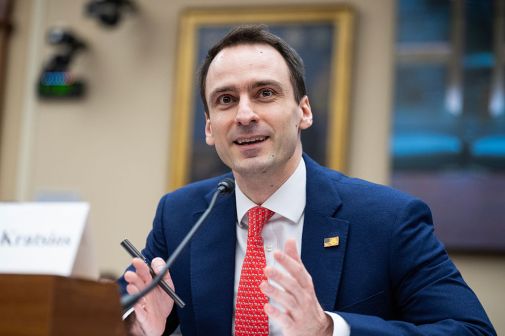Former DIA boss says U.S. must move fast or ‘become irrelevant’
The former director of the Defense Intelligence Agency said Tuesday that if the U.S. government does not catch up to the speed with which technology is evolving, it will “become irrelevant.”
Speaking at the Kaspersky Government Cybersecurity Forum in Washington, retired Lt. Gen. Michael Flynn gave a veritable laundry list of things he finds disappointing with the way the United States conducts itself when it comes to cybersecurity — whether reacting to attacks or crafting new policy.
“Speed is the new big,” Flynn said. “If you can’t move at the speed of today — and our government is terrible at this — if you can’t move at the speed [of] the world of technology, you are going to become irrelevant.”
Flynn expressed frustration at the lack of action from current lawmakers and the paucity of discussion from candidates campaigning to be the next president. Flynn said people should try to reach out to candidates to get answers on cybersecurity questions, given that he believes “the next president of the United States is going to have to deal with a cyber war.”
“All of the campaigns have Twitter accounts, so ask that question,” Flynn said. “They absolutely should be answering. The interesting thing is if they actually take the question, what would their answer be? Honestly, the few components of the debate that I have watched, it’s actually been pretty embarrassing as to what we are asking about. I mean the last one, we were talking about Donald Trump’s hair? Who gives a shit?”
He also chided Congress for stalling on various pieces of legislation, saying that dragging out fights over privacy and security is leaving defenders barred from taking swift action against malicious actors, or figuring out ways the public and private sector can collaborate.
“There are 22 pending pieces of legislation which is absurd,” he said. “Congress can’t seem to get their act straight with any of this kind of stuff.”
Flynn says without action, the Internet will continue to be a “lawless ungoverned battlespace.” He pointed to the latest incident to make headlines: hackers infiltrating the personal email accounts of CIA Director John Brennan and DHS Secretary Jeh Johnson.
“No one is protected and you’re crazy to think you are going to be secure,” he said.
But whether its lone hackers or nation-states, Flynn says the U.S. has acted differently than adversaries like Russia and China in cyberspace because the U.S. adheres to the “rules of engagement.”
“We follow international law, international norms, international behaviors,” he said. “We are a society that respects law. I wouldn’t say that Russia doesn’t respect law, but the world of cyber that has allowed them to operate is so anonymous, and largely in the world of transnational organization criminal networks.”
Even with agreements like the one the U.S. signed with China last month to curb the theft of intellectual property, Flynn said it’s imperative for some action to be taken in the event that a nation-state goes past the point of no return. That action may come sooner that anyone thought: A report from cybersecurity firm CrowdStrike released Tuesday said China may have continued to attack private American companies after the last month’s agreement was signed.
Flynn said that actions like that should be a red line, and the country should have a policy in place to deal with the associated fallout.
“Eventually, [war] is going to happen. Two nations like we have, all the tension that we have, somebody is going to make a mistake,” he said. “What will take us to the gates? What will cause us to go and defend this country against the kind of things we face? I’d like to think that China will always be a competitor of ours. We have to compete in this space. But it gets really, really hard.”






